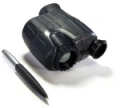 U.S. citizens can now work for certain NGOs in Iran . . . as long as they leave their laptops at home.
U.S. citizens can now work for certain NGOs in Iran . . . as long as they leave their laptops at home.
On August 22, 2006, OFAC announced a General License permitting U.S. citizens to work for six specified NGOs in Iran. Prior to issuance of the general license, the Iranian Sanctions regime would have prohibited U.S. citizens from working in Iran without specific approval from OFAC. The six NGOs eligible for the general license are the United Nations, the World Bank, the International Monetary Fund, the International Atomic Energy Agency, the International Labor Organization and the World Health Organization. OFAC indicated that the reason for the change in policy is “the U.S. interest in promoting the hiring and retention of Americans by international organizations.”
OFAC, however, maintained a significant and largely inexplicable exception to the General License:
The CCL includes items such as laptops, personal computers, cell phones, personal digital assistants and other wireless handheld devices/blackberries, and other similar items. The exportation of these items to Iran, even on a temporary basis, is prohibited, unless
specifically authorized in a license issued pursuant to this part. . . .
For example ECCN 4A994 controls computers having an “Adjusted Peak Performance†(“APPâ€) equal to or greater than 0.00001 Weighted TeraFLOPS (“WT”). Items in that category require a license prior to export to Iran. Almost all commercially available computers exceed the 0.00001 WT benchmark (which is equivalent to the performance of an Intel 386 chip).

 Posted by
Posted by  Category:
Category: 

 On August 17, BIS
On August 17, BIS 

